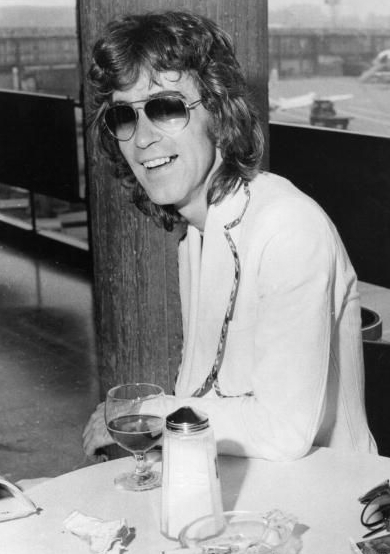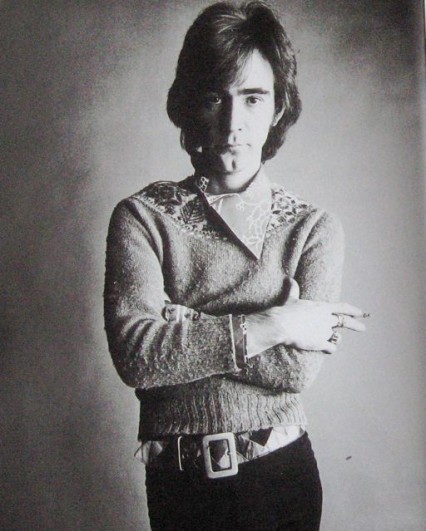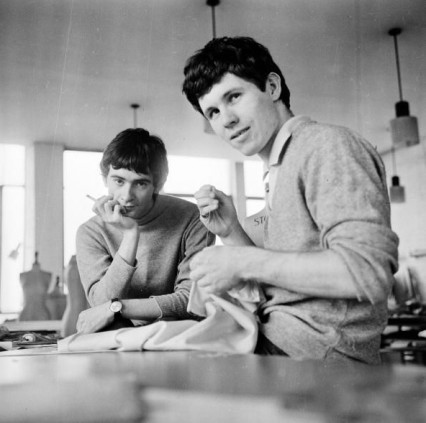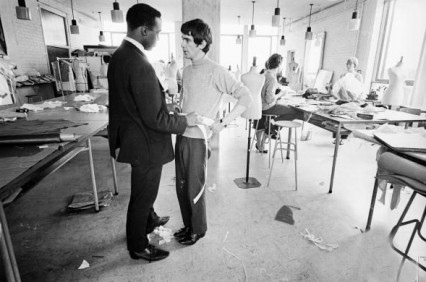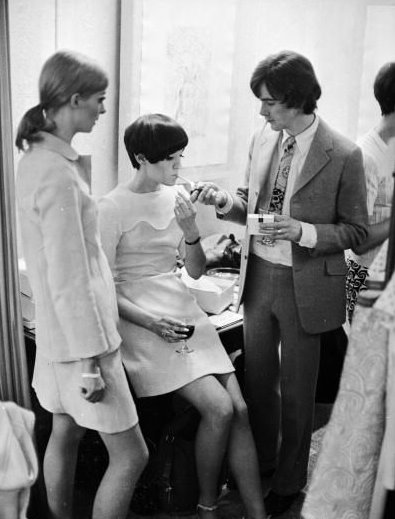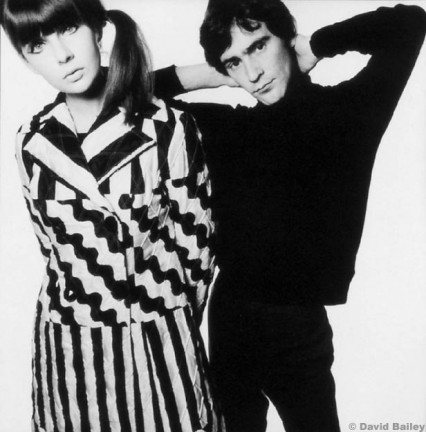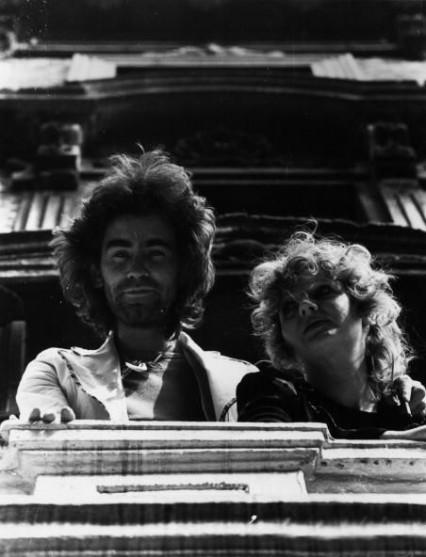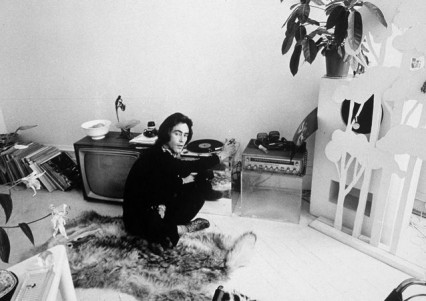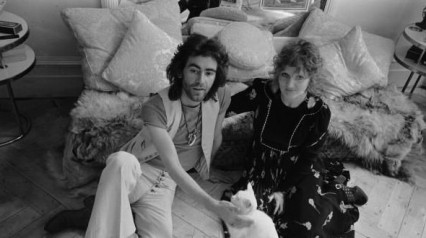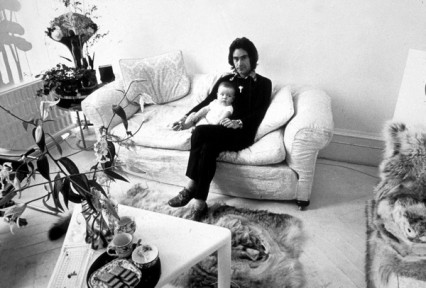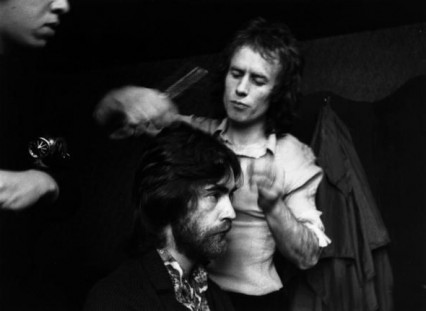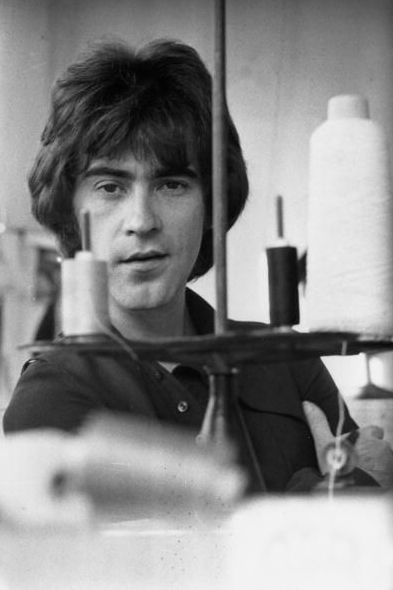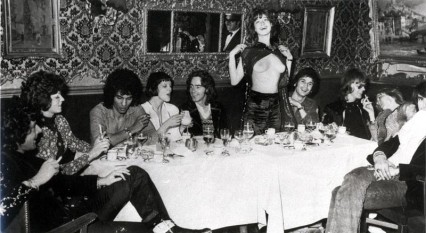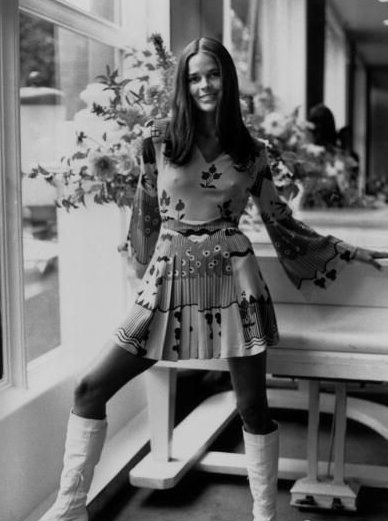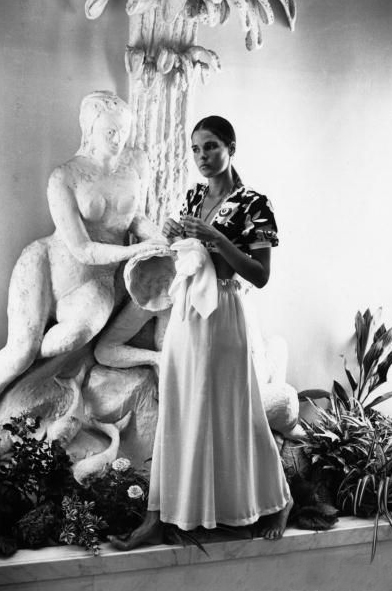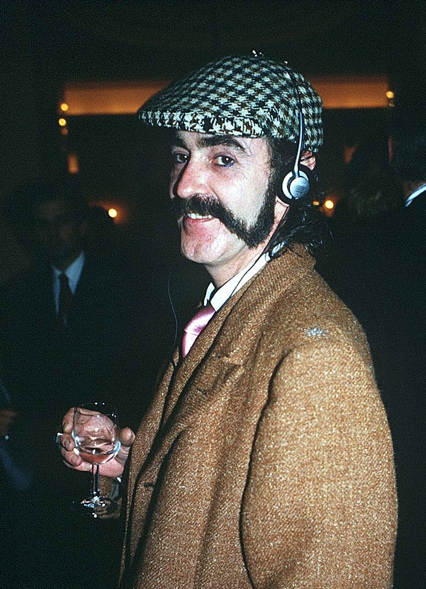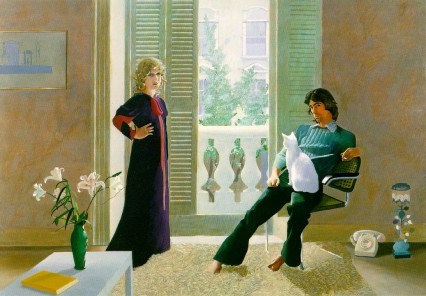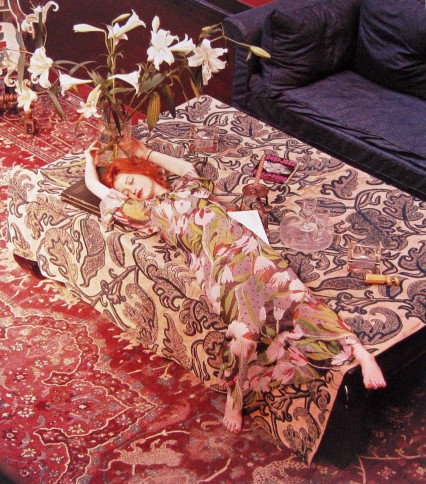I updated Ossie Clark, the King Of The Kings Road in Holland Park today with some extra great pictures.
Posts Tagged ‘fashion’
Ossie Clark post updated
Saturday, March 14th, 2009Ossie Clark, the King Of The Kings Road in Holland Park
Sunday, April 20th, 2008In 1995 Ossie Clark, the iconic sixties and seventies fashion designer known for his flowing dresses and a rather excessive party lifestyle, invited the 27 year old Italian Diego Cogalato to move into his one-bedroomed Holland Park council flat in Penzance Street. Just eighteen months later, Cogalato called 999 and said to the operator ‘I think I’ve killed someone…’.
When the the police broke into the flat they found Ossie Clark on the floor with 37 stab wounds to his body and with his head completely stoved in, apparently by a large terracotta pot.
At the trial Coglato’s defence revealed that at the time of the murder he had been high on a mixture of Prozac and amphetamines – a combination of drugs that caused him to see himself as the New Messiah. Unfortunately they also caused Coglato to see Ossie Clark as a devil. A devil that needed to be extinguished. Coglato was convicted of murder but given just a six-year sentence on the grounds of diminished responsibility.
By the time he died, Ossie Clark was an unkempt and sad figure often wandering around Holland Park near his flat. He had become a buddhist and apparently prayed everyday in front of a shrine made entirely of empty packets of Sobranie cigarettes. His carpet was just brown cutting paper and his goldfish were kept in vases. He was so poor that he was occasionally seen scouring the streets for dog-ends to smoke and even fished pennies out of the fountain in Holland Park.
Just thirty years earlier, and ultimately to become one of Britain’s greatest fashion designers, Ossie Clark was at the beginning of his glittering career. In 1962 Ossie Clark moved to London to enrol at the Fashion Design School at The Royal College of Art. He graduated in June 1965, with a first class degree and a collection inspired by artist Bridget Riley.
Clark was an immediate success and he’d hardly graduated when Vogue magazine wrote about him as a major new talent and photographer David Bailey was hired to take his portrait.
Clark began to sell both his couture and ready-to-wear lines in the Chelsea boutique, Quorum with his friend and business partner Alice Pollock. Incidentally David Gilmore, later of Pink Floyd was a driver for Quorum for a while and later would provide a lot of music for Clark’s innovative fashion shows.
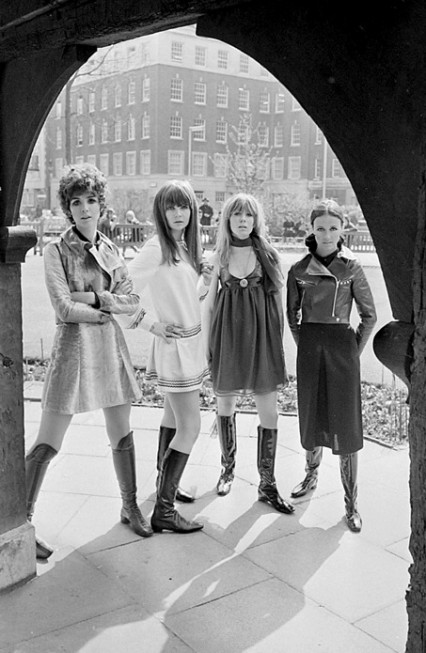
Linda Keith, Chrissie Shrimpton, Suki Poitier and Annie Sabroux displaying the Ossie Clark and Alice Pollock winter collection April 1967
Part of the success of Clark’s clothes at the time was due to the extraordinary collaboration with his wife, the textile designer Celia Birtwell. Many of Clark’s more famous garments were designed around her fabrics.
Clark had met Birtwell while they were both students in Manchester and although he was sexually attracted to men they became lovers, marrying in 1969 when she was pregnant with their first child. David Hockney, friend of the couple and sometime lover of Ossie, was the best man.
The marriage only lasted a few years – towards the end of the marriage Birtwell could no longer put up with Clark’s wild-partying, drug-taking and his many affairs with both men and women. She eventually had had enough and started an affair with the artist Adrian George, leaving Ossie for good in 1974.
David Hockney’s famous painting ‘Mr And Mrs Clark And Percy’ was given to the couple as a wedding present. Ossie, later in his life and needing the money, sold it to the Tate Gallery for just seven thousand pounds. It is now one of (if not the) most famous British painting and worth millions. Clark was always, despite his success, a very bad businessman.
During the decade before the separation however, Ossie Clark was the star of British fashion – even describing himself as a “brilliant butterfly”. He was particularly famous for his bias cut dresses and brilliant tailoring.
He had an incredible eye for the female form and thus created incredibly flattering clothes – it was said that he could cut a dress to fit a woman perfectly just be running his hands over her body. Marianne Faithful described trying on one of his dresses for the first time when she was eighteen -
“Ossie wanted everything to be on bare skin, so he said ‘Take it all off’ – and I did – the display was heart-tugging.”
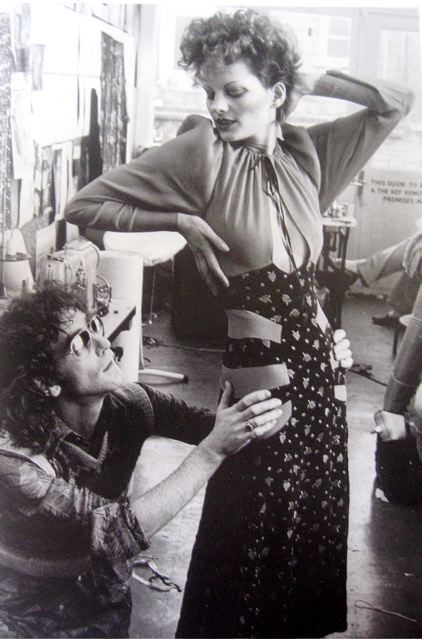
Ossie with Gala Mitchell his favourite model. 'It's all in my brain and fingers' he once said, 'I am a master cutter.'
By the early seventies Clark was at the height of his fame – his dresses were worn by the the most beautiful and famous women of the era – Patti Boyd, Ali MacGraw, Twiggy, Jean Shrimpton, Elizabeth Tayor and Liza Minelli. He even designed some of Mick Jagger’s stage costumes including the famous white jumpsuit he wore on the 1973 Exile On Main Street tour. If he was visiting New York he would hang out with Andy Warhol, Diana Vreeland and Truman Capote. He probably thought that life couldn’t get much better.
After the separation with Celia, Clark never really recovered emotionally and professionally and although the first entry in his diary in 1974 read:
January 10. Moved into Powis Terrace. Dinner with Mick and Bianca. Took Mo to cheer him up. After, Paul Getty Jr with Nikki Weymouth, Chrissy, Robert Fraser.
In the mid-seventies his fortunes went into a downward spiral, never a good business man, Clark now found his clothes decidedly unfashionable. The Kings Road was now enthralled with the punk revolution and its accompanying home-made fashion.
By 1983 Clark was declared bankrupt after the Inland Revenue claimed 14 years of back tax. He lost his house and had to live with friends until, eventually, the DHSS re-housed him in the small council flat in Penzance Street – the council flat where he was ultimately murdered.
Except for bits and bobs he never really worked properly again.
